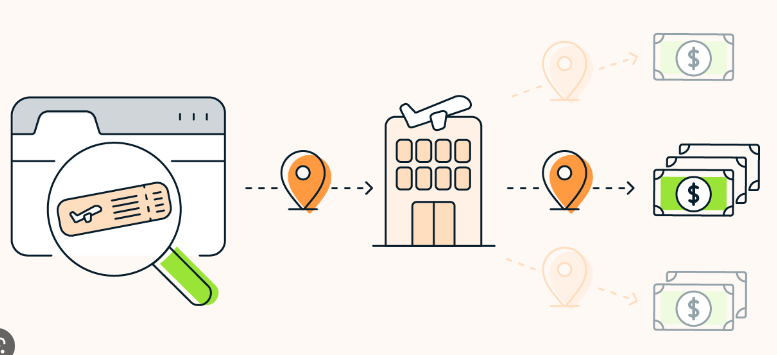At its most basic, using a VPN (virtual private network) when you go online may give two significant advantages.
Privacy – by disguising your IP address, location, and search history, you can prevent websites, internet browsers, cable companies, internet service providers (ISPs), and others from tracking you.
Security — by assisting in the protection of your personal information and other data while it is in transit, or while it is delivered from and received by your device.
However, a VPN is capable of much more. A VPN software might also be beneficial in other ways.

Contents [hide]
Benefits of a VPN
Hides your personal information
Websites and applications may continually monitor and analyze your internet activities. A VPN may prevent web browsers and others from viewing your connection, allowing you to transmit and receive information anonymously and securely. Some VPNs additionally provide military-grade 256-bit data encryption.
Avoid data throttling
Data throttling happens when you have consumed a specific quantity of your data and your internet service provider slows down your service as a consequence. With a VPN, your data is not only protected from the prying eyes of ISPs and others, but you are also not subject to bandwidth caps. ISPs may impose data limitations to increase internet speed for certain of their users.
Prevent bandwidth limiting
If you’ve noticed decreased internet speeds on various websites and at different times, you may have been subjected to bandwidth throttling. ISPs — or anybody with administrative access to your network — might be to blame for the lag. A VPN may be useful. It might slow down your smartphone by encrypting its internet traffic. This hides the destination of your online traffic and prevents others on the same network from viewing its content.
Unblock region-blocked services
Some VPNs may be able to unblock geo-blocked material from Netflix and other providers*. How? A VPN may alter your IP address to make a content provider believe you’re surfing in another area or region where access is permitted. Always read the Terms of Service agreements to find out what your streaming service allows and follow those limits. Also, keep in mind that certain nations may impose fines for using a VPN to bypass their laws.
When visiting overseas, avoid censorship
Some VPNs may assist you in circumventing geographical limitations. Some governments, for example, limit or prohibit access to particular websites, such as social media platforms, or censor certain information. A VPN, on the other hand, may assist you to get access by making your traffic seem to be originating from a different place. Remember that it is the user’s obligation to determine whether or not their VPN usage is legal, and to verify the country’s legislation before utilizing a VPN.
Gain access to regional sports coverage
Some VPNs may help you get access to regionally restricted sports broadcasts. A television network such as NBC, for example, may not be accessible for watching if you are not in the United States. Viewing may be feasible with the use of a VPN. Nonetheless, verify your streaming service agreement for the Terms of Service, and be aware that certain countries may have fines for utilizing VPN to evade their regulations.
More from us:
- How to Provide Better Customer Service
- How to Make Cameras Smart with Modern AI Solutions
- Wireless Microphone Adapters: How to Connect Your Mic to a Wireless System
Conclusion
The best VPN for you will be determined by your requirements and your budget. Free VPN providers may not provide all of the capabilities you want, and some may provide free service in return for access to your data. Here’s your option. If VPN companies do not charge user fees, they may recoup their expenses via advertising or by collecting and selling your data to third parties such as data brokers and marketers. If you value your online privacy, selecting the best VPN for you may include paying for one. Remember that a VPN allows you to add extra levels of online privacy and protection to your online activity.






